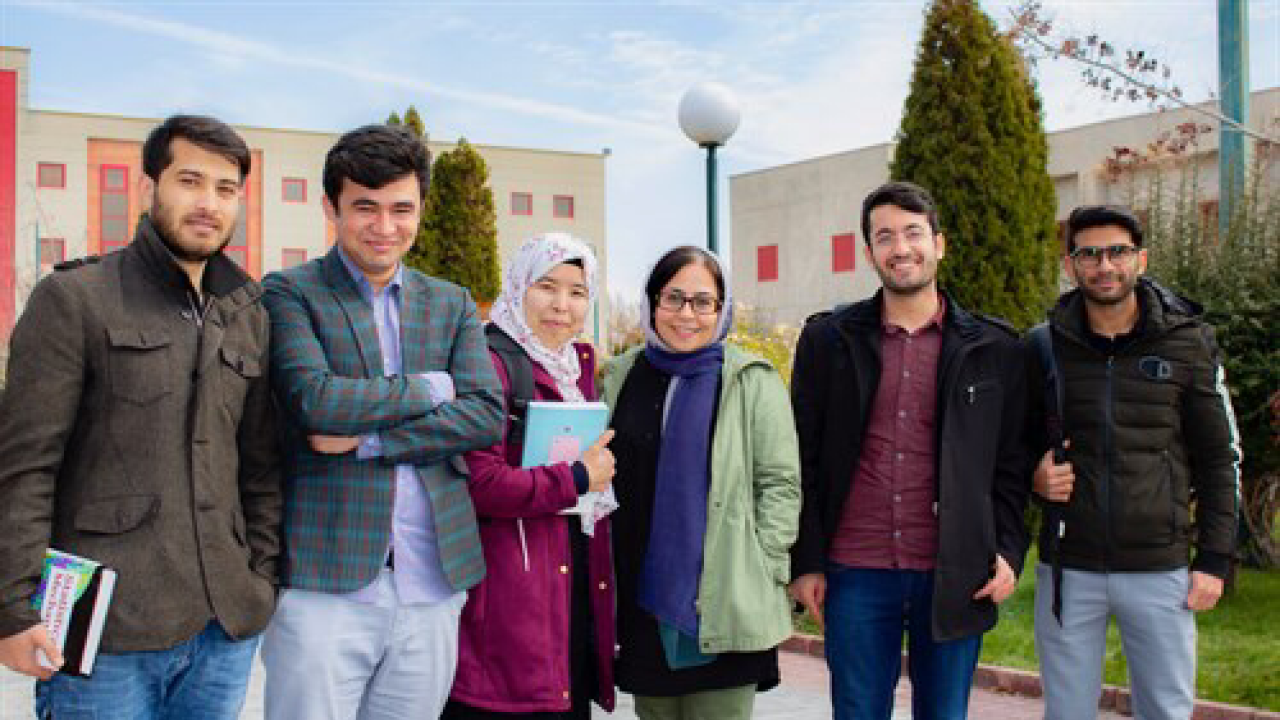
Basic science research is hugely important for any society or country, to support knowledge growth, education systems, investigation and stewardship of the world, and ideas that turn into future technologies and techniques. But it is hard to build a community of scientists and scientific capacity when one of the key steps for scientists – getting a Master’s degree – is not possible in the country.
That’s the barrier that a new programme co-sponsored by ICTP’s Physics Without Frontiers (PWF) programme helps students overcome. Afghanistan currently has no Master’s programmes in physics available for students to continue their studies with past the Bachelor’s level. To support the many interested physics students, PWF is working with the Institute of Advanced Studies in Basic Sciences (IASBS) in Zanjan, Iran, making it possible for Afghan students to further their education in physics.
The new joint Masters Programme is a result of discussions that started at the first PWF activity in Afghanistan, which was held at the University of Kabul in 2018. In collaboration with Baktash Amini, a professor in physics at the University of Kabul and the PWF coordinator in Afghanistan, and Mina Zarei, a professor in physics at IASBS, PWF now supports students for a two year Master’s degree at IASBS.
The first class of Afghan students in the new Programme are now finishing their first year of classes in Zanjan, and the Programme is currently accepting applications for the second cohort, with the deadline on 10 June 2020. Information about PWF programmes and activities and details on applying to the PWF-IASBS Masters degree can be found here.
The current cohort of students supported by this scholarship scheme are excited about what this opportunity will help them do in the future. “My goal is to create global laboratories to pioneer teaching Complex Systems and Neuroscience in Afghan Universities, once I obtain my PhD,” says Yahya Ashrafi, one of the students. “‘I think this experience will be beneficial not only to me, but to other Afghan students as well, in particular to female ones. I hope this opportunity can help strengthen the role of female scientists in basic science in Afghanistan,” says Maryam Mohammadi. “I hope the Masters will help me towards my ultimate goal to obtain a PhD, so that I can go back to Afghanistan to help the Science Centre to establish a diploma programme,” says Qais Kazimi. “This would improve the quality of physics courses and teaching in high schools.” Mohammad Ismaeil Safa puts it simply: “Thanks to this scholarship I hope to become an active member of groups of scientists working to support students and science in Afghanistan, and inspire the next generation of Afghan physicists.“













